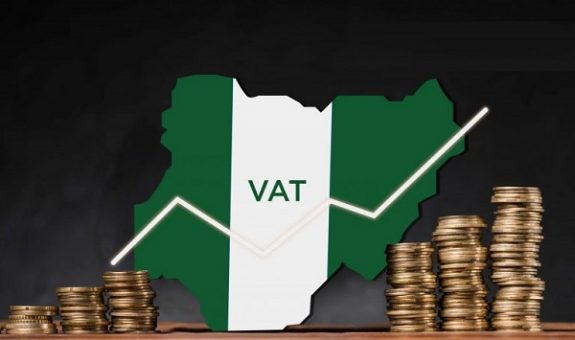
The proposed Value Added Tax (VAT) sharing formula currently under review by Nigeria’s National Assembly has ignited heated discussions over its potential impact on revenue allocation across states. If passed, the new model could significantly boost VAT revenue for northern states while drastically reducing shares for economic powerhouses like Lagos and Rivers states.
According to details released by Senate Leader Opeyemi Bamidele, the proposed changes aim to create a more equitable distribution of revenue. For instance, Kano State’s share would increase from 0.89% to 6.17%, and Zamfara’s from 0.05% to 1.21%. Conversely, Lagos State, which currently enjoys 80.26%, would see its share plummet to 15.28%, representing an 81% decrease. Rivers State’s allocation would also drop from 7.74% to 4.6%, a 41% reduction.
Bamidele defended the reforms, stating, “The proposal is guided purely by the principles of equity, fairness, and justice.” He noted that the new bills would exempt employees earning less than ₦1 million annually from taxes, while VAT on essential services such as food, education, and healthcare would remain at zero.
The proposed changes, however, have drawn criticism from some lawmakers, including Senator Ali Ndume, who argued that the new formula could disadvantage northern states. Public concerns have also emerged about the significant reductions in revenue for Lagos and Rivers, which are among the largest contributors to Nigeria’s VAT pool.
Dr. James Abiodun Faleke, Chairman of the House of Representatives Committee on Finance, sought to allay fears by emphasizing that the reforms would harmonize taxes and exempt over 90% of items affecting ordinary Nigerians. He described VAT as a “rich man’s tax,” stating, “Items such as food, education, and public transportation will not attract VAT as long as they are not sold in luxury settings like hotels and big restaurants.”
Religious leaders have also weighed in on the matter. The Anglican Archbishop of Kaduna Province, Timothy Yahaya, urged states to focus on boosting production rather than relying on federal revenue allocations. “Some states should be known for producing cocoa, rubber, plantain, or rice. Leaders must think outside the box to create wealth,” he said.
The VAT reform is part of a series of legislative measures under consideration, including the National Minimum Wage Act and the Investment and Securities Act. Proponents argue that these reforms will create a more sustainable economic framework and foster equitable development across the country.
Despite the controversy, lawmakers remain optimistic that the proposed changes will stimulate economic growth and ensure fairness in revenue sharing. The debate continues as the National Assembly works to finalize the bills.








